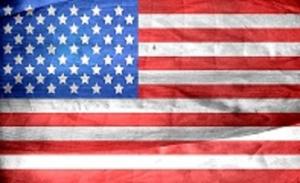I have to admit that I’m not a huge fan of Independence Day. I fully appreciate what it stands for, but do not appreciate the various ways in which we Americans tend to trivilize and commercialize the day, just as we manage to do with Christmas, Thanksgiving, and virtually every other holiday that supposedly stands for more than something than just a day off and/or spending a lot of money. I’ve always had an edgy relationship with over-the-top displays of knee-jerk patriotism joined at the hip with unfounded claims to exceptionalism. But then, that’s just me.
Independence Day is an opportunity for many Americans to express their patriotism with flags on their lawns and with slogans like “America First” and “America—Love it or Leave it,” expressing their support and love for a country that, according to many of the same Americans, was “founded on Christian principles.” Which brings me to a question that I frequently ask around national holidays–How should those who profess the Christian faith think about American exceptionalism and exclusivity?

Around this time a few years ago, I heard Joy-Ann Reid of MSNBC interview the Most Rev. Michael B. Curry, Presiding Bishop of the Episcopal Church, and Rev. William Barber, an eloquent and vocal advocate and activist for many social issues. Although we Episcopalians already were familiar with Bishop Curry as our presiding Bishop, he become an overnight international rock star with his rousing sermon at the Harry and Meghan royal wedding that had happened a few weeks before the interview. Rev. Barber had grabbed national attention with a similarly striking speech at the Democratic National Convention in the summer of 2016.
During their ten-minute joint interview with Reid, both Curry and Barber mentioned a recent document called “Reclaiming Jesus.” Imagined as “A Confession of Faith in a Time of Crisis,” a document that had been released on Palm Sunday several weeks earlier by a multiracial group of church leaders with representation from evangelical, mainline Protestant, African-American, and Catholic churches. The document was intended to remind Christians—including the ninety-one percent of members of Congress who self-identify as Christians as well as the eighty-one percent of white evangelical Christians who voted for Donald Trump for President in 2016 and 2020; they still support him in similar numbers—that when politics undermines theology, that politics must be reexamined. The entire document can be found here: http://www.reclaimingjesus.org/, and is worth reading carefully; the portion toward the end of the document that was briefly discussed during the interview with Joy-Ann Reid is particularly relevant to Independence Day.
WE BELIEVE Jesus when he tells us to go into all nations making disciples (Matthew 28:18). Our churches and our nations are part of an international community whose interests always surpass national boundaries. The most well-known verse in the New Testament starts with “For God so loved the world” (John 3:16). We, in turn, should love and serve the world and all its inhabitants, rather than seek first narrow, nationalistic prerogatives.
THEREFORE, WE REJECT “America first” as a theological heresy for followers of Christ. While we share a patriotic love for our country, we reject xenophobic or ethnic nationalism that places one nation over others as a political goal. We reject domination rather than stewardship of the earth’s resources, toward genuine global development that brings human flourishing for all of God’s children. Serving our own communities is essential, but the global connections between us are undeniable. Global poverty, environmental damage, violent conflict, weapons of mass destruction, and deadly diseases in some places ultimately affect all places, and we need wise political leadership to deal with each of these.
Tribalism, exclusivity, and “us vs. them” thinking is so natural to human beings that it seems to be embedded in our collective DNA. This is one of the most challenging aspects of the radical message of the Gospels—God apparently is not the least bit interested in what we tend to assume is most important. Many of Jesus’ contemporaries misunderstood him entirely because he spoke of a “kingdom” that bore little to no resemblance to the physical kingdom they expected the Messiah to reestablish.
God’s kingdom transcends political and national differences, focusing instead on issues and matters that cross all human made boundaries. In the Reid interview, Rev. Barber reminds us that the first thing we hear from Jesus in Luke’s gospel is that “The Spirit of the Lord is on me, because he has anointed me to proclaim good news to the poor. He has sent me to proclaim freedom for the prisoners and recovery of sight for the blind, to set the oppressed free.” Bishop Curry, in the same interview, reminds us that when asked about the final judgment—another way of asking “What does God care about most?”—Jesus responded by asking “Did you feed me when I was hungry? Did you clothe me when I was naked?”
Pandemics, bondage, oppression, hunger, poverty, and nakedness know no boundaries—they are symptomatic of our world and are what God is clearly most interested in addressing. According to all of the great monotheistic religions, God’s purposes on earth are largely accomplished through human beings. If we are to be the hands and feet that accomplish the divine will on earth, we cannot limit and define our actions with human made boundaries and borders in mind.
This is a particularly difficult message for American Christians, many of whom were raised to consider patriotism and Christianity to essentially be the same thing. It seems like eons ago when former President Barack Obama regulary made many people angry, simply because he occasionally questioned our knee-jerk assumptions of American exceptionalism. In the comment section on one of my blog posts not that long ago, a self-described pious and dedicated Catholic Christian tried mightily to convince me that the Catholic church is the truest and best version of Christianity for several minutes in a Facebook conversation. The piety and Christian vocabulary went out the window when I asked him if he, as a dedicated Catholic, had voted for Donald Trump.
In the midst of his tirade in response, he referred to how glad he was that the “American-exceptionalism’s-greatness hating Alinskyite scumbag Obama administration” was no longer in power, also expressing gratitude that the Obama administration was not “continued with Hillarigged and the Clinton crime machine. And yes, prolife matters.” I thanked him for revealing his true commitments—he did not respond further.
The true difference between patriotism and nationalism is that patriotism is supporting one’s country, while nationalism is supporting one’s country no matter what it does. Patriotism honors one’s country for its achievements while holding it responsible to the values expressed in its founding documents; “America, love it or leave it” fails the responsibility part. Throw in a commitment to following the principles of the Gospels, and one will have to make choices on a regular basis. As Bishop Curry said in the interview, “I love my country, but I love God first.” That changes everything.













